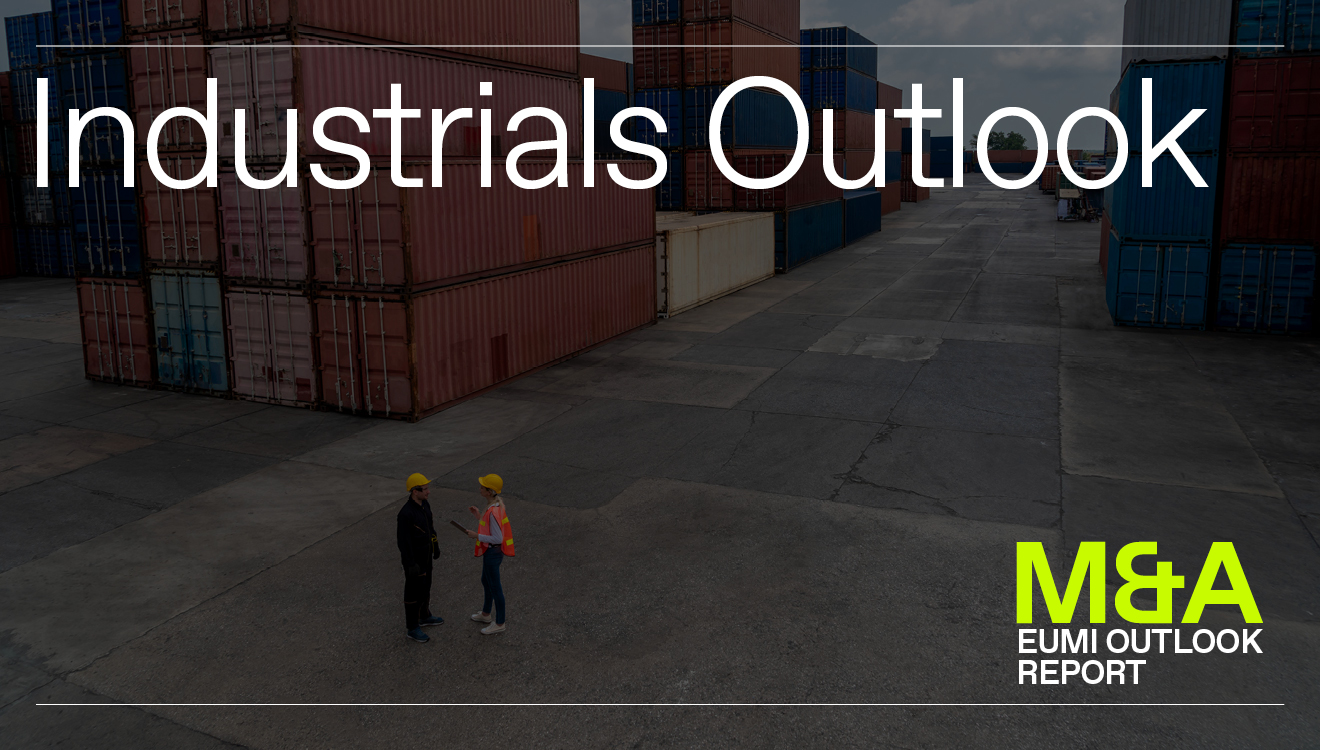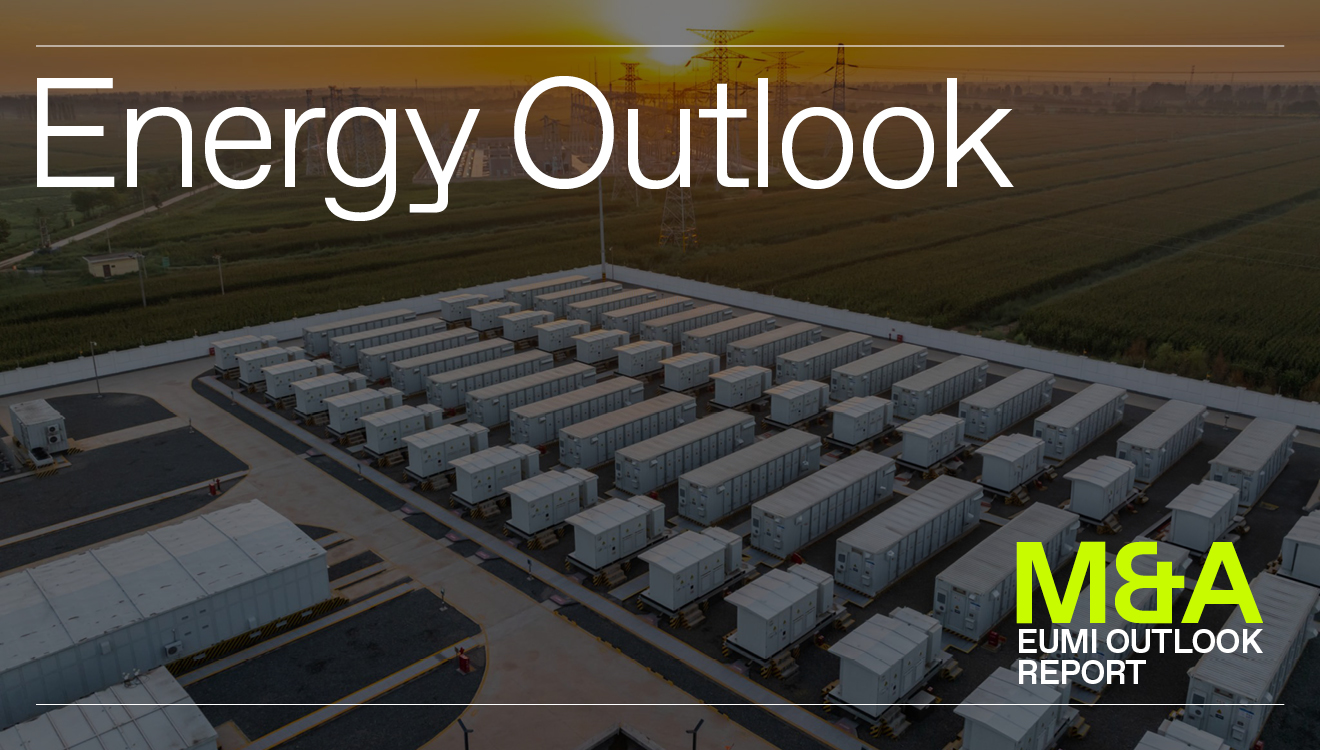Domestic deals in Germany rise as global uncertainty persists
Buyouts are fueling M&A growth in Germany in 2025, while economic and geopolitical uncertainties pose challenges.
By AnsaradaTue Jan 07 2025Mergers and acquisitions, Advisors, Industry news and trends

German M&A activity experienced a period of deceleration in recent years, mirroring global trends. Rising interest rates and a shift towards more selective investment strategies contributed to this slowdown.
However, 2024 witnessed a nascent recovery, with deal values approaching 2023 levels despite a lower transaction count. While not expected to be a record-breaking year, several large-scale deals significantly boosted deal values. For example, Abu Dhabi National Oil Company's acquisition of Covestro for €15.6 billion and DSV's purchase of Schenker for €14.3 billion exemplify the notable transactions that have contributed to this trend.
These insights have been gathered as part of our 2025 Germany M&A Outlook Report, developed in association with Mergermarket. The report takes the pulse of 50 corporate and private equity (PE) dealmakers’ headquartered in Germany and shares their sentiment of the market in 2024, while looking ahead to what’s in store for 2025.
Sector trends
According to the survey, the Industrials and Chemicals industry emerged as the leading sector in 2024, driven by substantial deals within the space. Transportation followed closely, largely due to the significant Schenker acquisition. Technology, Media, and Telecommunications (TMT) secured the third position in terms of deal value.
In terms of deal count, TMT, Industrials and Chemicals, and Business Services led the way. The Consumer, Financial Services, Leisure, and Real Estate sectors also demonstrated notable growth, surpassing their 2023 deal counts.
Energy was also anticipated to witness significant growth, driven by the country's transition away from Russian gas dependence. This transition presents significant opportunities for investment in renewable energy sources and energy infrastructure.
Private equity activity
The survey also found PE buyout activity experienced a significant increase in value in 2024 compared to 2023, driven by larger deals, particularly those involving US private equity firms. Notable examples include TPG's acquisitions of Techem for €6.7 billion and Aareon for €3.9 billion, and Platinum Equity's purchase of Sunrise Medical for €1.5 billion. These transactions demonstrate the increasing activity of US PE firms in the German market.
Conversely, buyout exits have been slower to materialize, with many private equity firms awaiting more favorable market conditions and improved valuations. This hesitancy reflects a cautious approach by PE firms, as they seek more favorable conditions for realizing their investments.
Domestic M&A outlook
Respondents expressed optimism regarding domestic deals, with a majority anticipating an increase in the number of transactions involving German targets and acquirers. This optimism suggests a growing confidence in the domestic market and a focus on domestic growth opportunities.
Inbound deal expectations were more moderate, with a significant proportion anticipating a slight increase or no change. Outbound M&A was also not expected to experience a significant surge.
Regional and global investment
The United Kingdom and Ireland was identified as the most significant source of European inbound investment. This highlights the strong economic and trade ties between Germany and the UK, despite recent political developments.
North America, particularly the US, is expected to remain a key source of foreign investment in Germany. This continued interest from US investors reflects the strong economic and technological ties between the two countries.
Deal drivers
Synergies, particularly cost savings, emerged as the primary deal driver according to the survey, reflecting the need to enhance competitiveness and address market disruptions. This focus on cost synergies reflects the challenging economic environment and the need for companies to improve efficiency and profitability.
Supply chain optimization was another crucial driver, particularly for corporates seeking to improve resilience and reduce reliance on global supply chains. This focus on supply chain optimization highlights the increasing awareness of supply chain vulnerabilities and the need to build more resilient and robust supply chains.
Distressed M&A
While respondents generally expected distressed deal levels to remain stable, corporates anticipated a potential increase compared to M&A advisors. This divergence in opinion suggests that corporates may have a more nuanced understanding of the potential for distress within the German economy.
The Weil European Distress Index highlighted Germany as the most distressed market, with the industrial sector showing significant distress. This finding underscores the challenges facing the German industrial sector and the potential for an increase in distressed M&A activity.
Challenges to dealmaking
Trade wars, particularly with the US, and political instability in Europe were identified as the most significant challenges to M&A activity. These geopolitical uncertainties create significant headwinds for businesses and can deter investment. Inflation and domestic political instability were also cited as potential obstacles.
These factors can create economic uncertainty and erode consumer confidence, thereby impacting business activity and investment.
Looking ahead
German M&A activity is showing signs of recovery after a period of subdued activity. While challenges remain, including geopolitical uncertainties and potential economic headwinds, the increasing focus on domestic deals, the resurgence of private equity activity, and the growing importance of strategic factors such as supply chain resilience and technological innovation are expected to drive dealmaking in the coming months and years.


